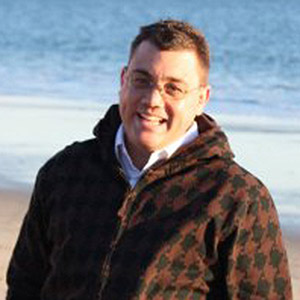 Recently, Justin Boseant moved to the Bay Area to start a job with the most visited and known website in the world, Facebook.
Recently, Justin Boseant moved to the Bay Area to start a job with the most visited and known website in the world, Facebook.
Today, he’s a data warehouse engineer, which means he’s part of the team that keeps Facebook’s massive data storage up and running for its 901 million monthly active users.
“I get to work with some of the brightest minds on some of the most challenging intellectual problems computer science is facing right now. We’re literally building computing solutions, abstractions, and services that didn’t exist last month. And better than that, I get to do so at a company that’s committed to providing something valuable and making a difference in this world,” says Boseant.
Before his epic move to Facebook headquarters, he graduated with a physics degree; however, during his years at college he discovered Linux and uncovered a lifelong passion for computing and what he describes as “nerdy things” like data mining and computational efficiencies.
After college Boseant decided to go back to school and update his skills in the SDSU Advanced Web and Mobile Applications Development Certificate program. “I enrolled for two reasons,” he says. “The classes were considered transferable credit toward a master’s degree. And second, web development has exploded in the last decade and good developers are still much in need. I anticipate that this will expand and shift toward mobile platforms in the coming months and years. Regardless of what type of computer systems development one does, knowing and understanding the mobile and web software stacks are going to be crucial to a successful career.”
Boseant took advantage of the program’s hybrid option for taking courses (learning on-campus and online) since his life was busy with his family and full-time job. “I used both classroom and online for when I missed class and a few times to review topics several weeks later. I’m not one to take notes; I find that if I spend my time writing it distracts from actually learning the material, especially when the topic is practical learning. It was surprising to me that the videos were the first place I’d go to reference something and remarkably easy to find what I was looking for by remembering when in the lecture I heard it,” he says.
Today he credits the program for landing the job at Facebook; however, not in a straightforward way. “The role I was hired for requires several years’ experience with databases and systems, but with a company like Facebook, they look for some of the most outstanding engineering talent on the planet. Mere experience with database wasn’t likely going to be enough. The interview, for example, isn’t just about being able to write code on the board – good code design matters; appropriate algorithm matters; selection matters; and, good solid naming conventions and readable code matters. These are some of the advantages that taking the certificate courses provided me.”
2016 Update: Boseant is now a production engineer at Facebook.